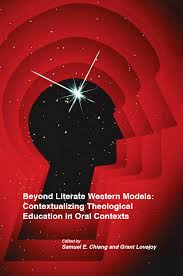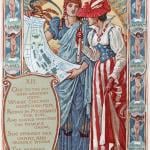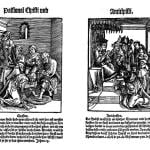In this series, I will explore the topic of contextualization among unreached people groups with orality based cultures. To state it negatively, they have high levels of illiteracy.
This is a complex topic, which requires a few posts to unpack the diverse factors related to contextualization among oral peoples.
THEOLOGY FOR THE SAKE OF UPGs
One of the main reasons I do theological education among Chinese church leaders is to equip a massive missionary force to reach the various unreached people groups (UPGs) in China and throughout the world.
The challenges of cross cultural work are difficult enough. When other factors are added to the equation––like illiteracy, poverty, ethnic division, and geographic isolation––one understands the importance of intentional planning and strategic training when it comes to UPG work. Missionaries in UPG contexts really need to be strong an array of diverse skill sets. They need to be tough and flexible to endure the hardships of the life.
Furthermore, creativity and patience will cover a lifetime of mistakes. I would also add one more need sometimes overlooked: They should be more versed in theological topics than the average pastor in the West.
Not only are they supposed to teach the same truths a pastor could teach, they also aim to train future pastors in a foreign culture that intermingles a number of religions and ideologies. This is not a simply job. However, they like us all are merely human and can’t do it all.
Why do I say all this?
Theological training is an essential component of UPG work.
It is not merely icing on the cake, the advanced content to be added to the basics. All methodology implies or is grounded in some sort of theology. Workers cannot teach a method of church planting or give a gospel presentation and not convey a load of theological content. That implicit theology may or may not be biblical; it may contradict broader cultural assumptions.
Problems arise when strategists and local peoples are not clear on such details. Confusion, even false teaching, can quickly result. Theological training instills DNA to sustain churches and movements for generations. It helps people realize the gospel entails a radical worldview change. Christian faith is more than private spirituality.
To put is another way, practice grows from perspective. A healthy and holistic theology should shape that perspective. If we default to ministry pragmatism, some other less-than-biblical perspective will motivate practice–like the desire for approval, money, security, etc.
Orality and UPGs
So many UPGs have very low literacy rates. Many UPGs don’t even have written languages. Naturally, strategists have to think about how to share the gospel and teach the Bible to people who can’t read.
Debates about orality can divide into two extremes. On one side, someone will say, “Teach them to read, or just focus on those who can read.” Others may go to the other extreme, “We can’t be using methods designed for literates when so many can’t read.”
Thus, it would seem they will only consider oral approaches to the exclusion of literate methods. Not surprisingly, this latter group could err towards being contra-theological training. After all, theological training traditional requires higher levels of education and literacy.
In reality, neither extreme is helpful.
Strategies for reaching “oral” peoples should include components that utilize those who are literate among that particular UPG; in addition, other methods that don’t depend on reading should be utilized.
In recent years, missionaries have especially stressed the importance of STORY and thus have focused on developing the most effective methods of COMMUNICATION possible. These are good focal points; however, we need to give more careful attention to each theme. It is not enough to say that “storying” is key to reaching illiterate people groups.
It matters which stories are told, the order of those stories, the way the individual stories are tied together, etc. Is there an essential theological connection between those stories? Is that connection evident? Why are these stories selected? Are certain themes emphasized more than others? Non-western cultures that don’t emphasize literacy tend to be very good at memorization. They use song, ritual, dance, among other things to reinforce the lessons to be learned.
In the coming posts, I’ll expand on the discussion, proposing ideas that may help answer a few important questions.
For example, how should we communicate Scripture, i.e. convey the information within the Bible? Do we teach about Israel to illiterate peoples in the mountains of southern China or northern India? How might oral peoples do exegesis, i.e. interpret the Bible?




















